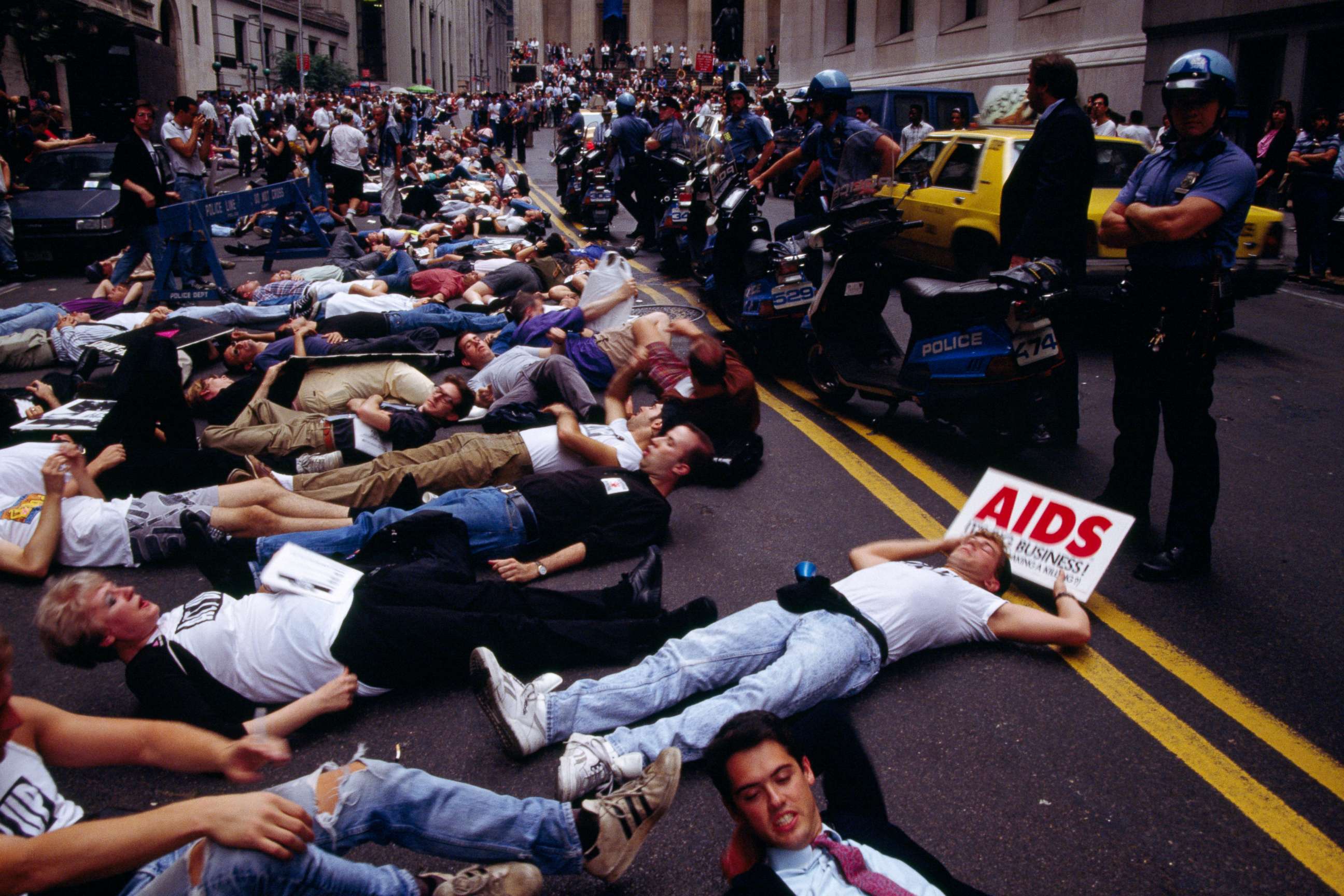40 years after start of AIDS epidemic, special looks at the pain and the promise
The special segment will air on ABC News Live December 1 at 8:30 PM ET.
Nearly four decades after the HIV/AIDS epidemic began in the United States, activists, scientists and doctors admit there is still work to be done.
There are 1.2 million people who are currently living with HIV in the U.S. and nearly 1 in 8 of those people do not know that they have it, according to the Centers for Disease Control and Prevention.
Although the rates of new diagnoses have been on the decline, HIV/AIDS diagnoses are not evenly distributed across the U.S.
The highest rates of new diagnoses are in the South, according to the CDC, and the top five cities with the highest number of new cases are all below the Mason-Dixon line.
A new ABC News Live special, "Viral: A World Without AIDS," streaming Dec. 1 at 8:30 p.m. ET, features interviews with people on the frontlines of the battle to eradicate HIV/AIDS.
ABC News visited the offices of SisterLove, an Atlanta organization that works to prevent the spread of HIV/AIDS as well as help people living with HIV to connect with treatment options. The group focuses specifically on HIV/AIDS within the female population.
One in every 51 Atlanta residents could be living with HIV/AIDS at any given moment, the organization said, underscoring what they see as the need for education, prevention and expanding access to treatment.

Although HIV/AIDS disproportionately impacts Black and Latino, gay and bisexual men, women make up a significant percentage of those infected.
Women make up more than half of all those living with HIV globally, according to the UN, and the CDC estimates that women make up nearly one-fifth of all new HIV diagnoses in the U.S.
ABC News spoke with organizers, scientists and doctors who discussed the relatively low rate of people taking PrEP, the antiviral medication used to prevent HIV, as one obstacle in their fight.
The CDC estimates that only 25% of eligible people were prescribed the drug, which has been on the market for ten years.
"At the end of the day, there's three things that end epidemics. There's science, community engagement and political will," Dr. Demetre Daskalakis told ABC News. Daskalakis is the director of the Division of HIV/AIDS Prevention in the National Center for HIV/AIDS, Viral Hepatitis, STD, and TB Prevention.
"You have to have all three things there," he added, "so how can we get the political will to make sure that access to PrEP is better?"
Last December, President Joe Biden's administration announced its goal to "lead us toward ending the HIV epidemic in the United States by 2030."
The drug has been criticized for being expensive, one potential reason for the lack of widespread adoption.
"PrEP is covered by insurance, both public and private," Dr. Jared Baeten, the vice president of HIV clinical development at Gilead, the company that manufactures the medication, told ABC News.

"For individuals who don't have insurance, federal government support and patient assistance programs from manufacturers like Gilead can make PrEP free," he said.
Yet for couples like Brandi Velasquez and her husband, not taking PrEP is a conscious choice.
Velasquez told ABC News that she lives with HIV, which she contracted from a previous partner, and she takes HIV medication. Her husband decided not to take PrEP because of the side effects.
Velasquez's husband has continued testing negative for HIV despite not taking the drug, and the couple celebrated their 21st anniversary this past September.
On the CDC website, it states that "PrEP is safe, but some people experience side effects like diarrhea, nausea, headache, fatigue and stomach pain."
"I think PrEP is really great for people out there that need it," she told ABC News.
"My prayer is that AIDS and HIV is eradicated completely," said Tina Knowles Lawson, businesswoman and mother of legendary singer Beyoncé. Lawson lost her nephew Johnny to AIDS.
"I really feel like there is a cure for it and I think it could be cured," she said. "I'm happy that people are living a long time and I hope to see it in my lifetime."




